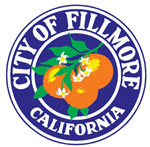|
DA decision on Fillmore City Council Brown Act Violations
By Anonymous — Wednesday, November 4th, 2009
 City of Fillmore The Ventura County District Attorney’s office announced on October 23rd in a letter to Fillmore City Manager Yvonne Quiring its decision not to bring criminal charges or a civil action against the Fillmore City Council for allegedly violating California’s Brown Act. The letter was made available October 30, 2009. Special Assistant District Attorney Michael Schwartz wrote in the letter, “I appreciate that the Brown Act can be complex and that members of public bodies must maintain constant vigilance to insure compliance with its terms. In this case, the City Council and the city Attorney took the alleged violations seriously and took prompt action to remedy any violation s that might have occurred.” Fillmore City Attorney Ted Schneider said the city is pleased with the District Attorney’s opinion, after conducting a thorough investigation. “The DA’s decision not to pursue a civil action against the City demonstrates the inherent weaknesses in Mr. McKee’s case,” stated Schneider, referring to the civil suit brought by Richard McKee, Director of Californians Aware, a California political watchdog group. “The DA has expressed that, ‘The Council’s admission that an unintentional violation had occurred, the prompt good faith actions to cure the potential violations, and the continuing statements of intent to comply with the Brown Act, make it clear that there are no threatened violations that would warrant a civil action.’” “The City Council takes the Brown Act extremely seriously, and is vigilant in ensuring compliance and taking prompt actions with respect to any alleged violations”, said Schneider. Mayor Patti Walker said it is not surprising that the DA, after review, determined that the City of Fillmore had quickly and diligently worked to cure any alleged violation of the Brown Act. On August 25, in a letter to Fillmore City Clerk Clay Westling, Councilman Steve Conaway accused three other members of the council of violating the Brown Act by participating in a private meeting earlier in the month and acting on information gleaned from the meeting. The meeting, held with then-city manager Larry Pennell, concerned the council’s search for a permanent city manager. In response to Conaway’s letter regarding the accusation, Walker began the council’s meeting that night by requesting an immediate closed session to discuss the accusations. The letter stated that he became aware, via email sent to him from Mayor Patti Walker, that a Brown Act violation occurred involving three of his fellow council members. The letter read that the “serial meeting was arranged and facilitated by transitional City Manager Larry Pennell. Mr. Pernell intentionally sought concurrence of thought from a majority of the city council. He and Mayor Walker received and acted upon information which, they gleaned from the ‘hub and spoke’ serial meeting.” The closed session was not listed on the council’s agenda, and constituted a second violation of the Brown Act. Walker said upon “recognizing the failure to comply with technical specifics” the matter was placed on the agenda at the next opportunity, September 8 and again on September 22. “Each of the three items at issue were cured,” said Walker. “The DA had the authority to bring a civil action against the City and in light of the fact we cured the violations it was determined that civil action would be “unnecessary” and “unwarranted”. McKee could not be reached for comment. See complete DA's letter attached below. |
